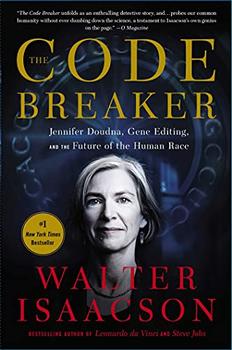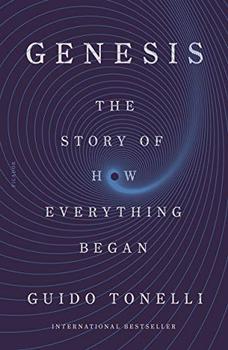Summary | Excerpt | Reviews | Beyond the book | Read-Alikes | Genres & Themes | Author Bio

Decoding Four Billion Years of Life, from Ancient Fossils to DNA
by Neil ShubinThe author of the best-selling Your Inner Fish gives us a lively and accessible account of the great transformations in the history of life on Earth--a new view of the evolution of human and animal life that explains how the incredible diversity of life on our planet came to be.
Over billions of years, ancient fish evolved to walk on land, reptiles transformed into birds that fly, and apelike primates evolved into humans that walk on two legs, talk, and write. For more than a century, paleontologists have traveled the globe to find fossils that show how such changes have happened.
We have now arrived at a remarkable moment—prehistoric fossils coupled with new DNA technology have given us the tools to answer some of the basic questions of our existence: How do big changes in evolution happen? Is our presence on Earth the product of mere chance? This new science reveals a multibillion-year evolutionary history filled with twists and turns, trial and error, accident and invention.
In Some Assembly Required, Neil Shubin takes readers on a journey of discovery spanning centuries, as explorers and scientists seek to understand the origins of life's immense diversity.
There were times I caught myself unable to stop reading, even though in general I'm not at all interested in worm DNA. Like a good television series, the pacing never flinches. Each chapter leaves you wondering what will come next. There is something for everyone here — scientific history, the science of evolution, and information that can help us speculate how life will evolve in the future (with or without human tinkering). Neil Shubin has written a masterful book, and I feel both lucky and more intelligent for having read it...continued
Full Review
(659 words)
This review is available to non-members for a limited time. For full access,
become a member today.
(Reviewed by Ian Muehlenhaus).
 One of the most interesting concepts discussed in Some Assembly Required is that almost all life is primarily comprised of borrowed components. We share 95 percent of our DNA with chimpanzees. Only two percent of the human genome is unique to our species. The rest of us is adopted, adapted, tweaked and outright stolen.
One of the most interesting concepts discussed in Some Assembly Required is that almost all life is primarily comprised of borrowed components. We share 95 percent of our DNA with chimpanzees. Only two percent of the human genome is unique to our species. The rest of us is adopted, adapted, tweaked and outright stolen.
Viruses make up at least eight percent of the human genome. Being made up of virus detritus is not, as you might first think, a curse. In fact, viruses are crucial to the survival and evolution of our species.
For example: long ago, our mammalian ancestors were infected by a virus incredibly similar to today's HIV. Rather than expunging it outright, our cells repurposed it. The DNA from this virus, combining with the ...
This "beyond the book" feature is available to non-members for a limited time. Join today for full access.

If you liked Some Assembly Required, try these:

by Walter Isaacson
Published 2022
Winner of the 2021 BookBrowse Nonfiction Award
The bestselling author of Leonardo da Vinci and Steve Jobs returns with a gripping account of how Nobel Prize winner Jennifer Doudna and her colleagues launched a revolution that will allow us to cure diseases, fend off viruses, and have healthier babies.

by Guido Tonelli
Published 2022
A breakout bestseller in Italy, now available for American readers for the first time, Genesis: The Story of How Everything Began is a short, humanistic tour of the origins of the universe, earth, and life - drawing on the latest discoveries in physics to explain the seven most significant moments in the creation of the cosmos.
Talent hits a target no one else can hit; Genius hits a target no one else can see.
Click Here to find out who said this, as well as discovering other famous literary quotes!